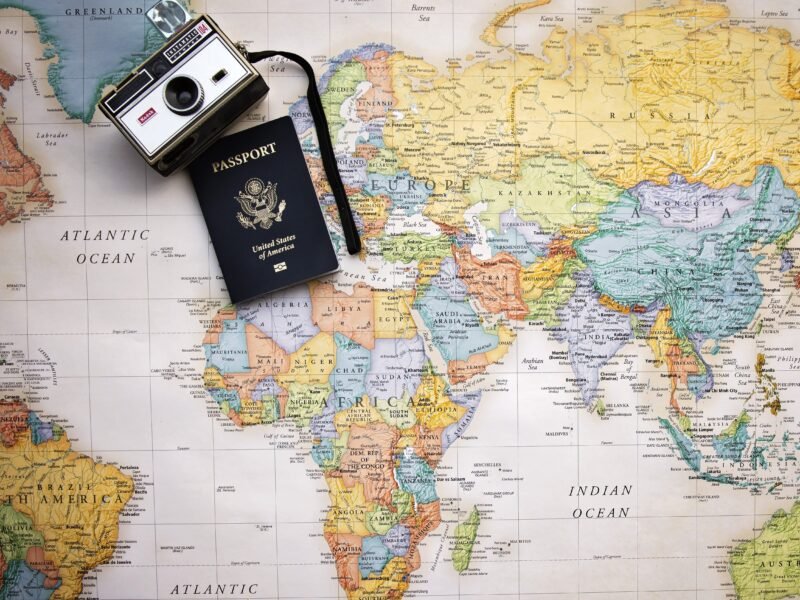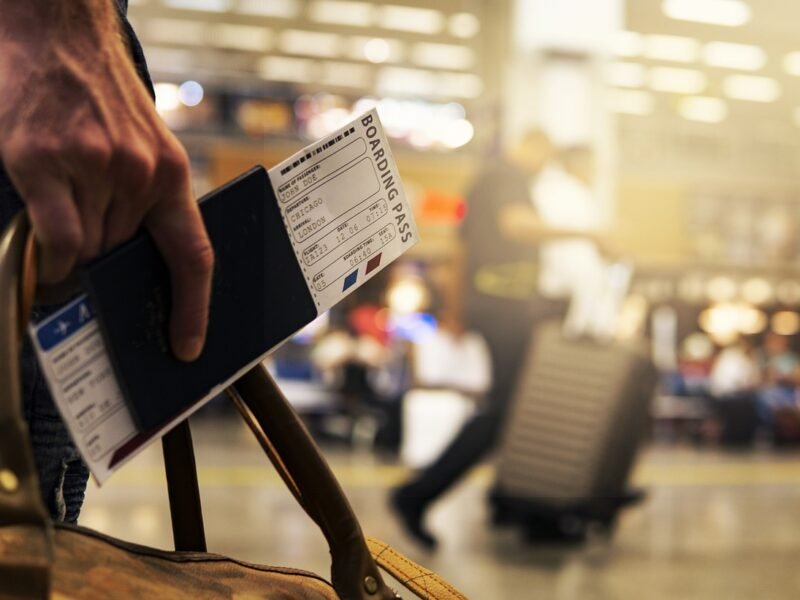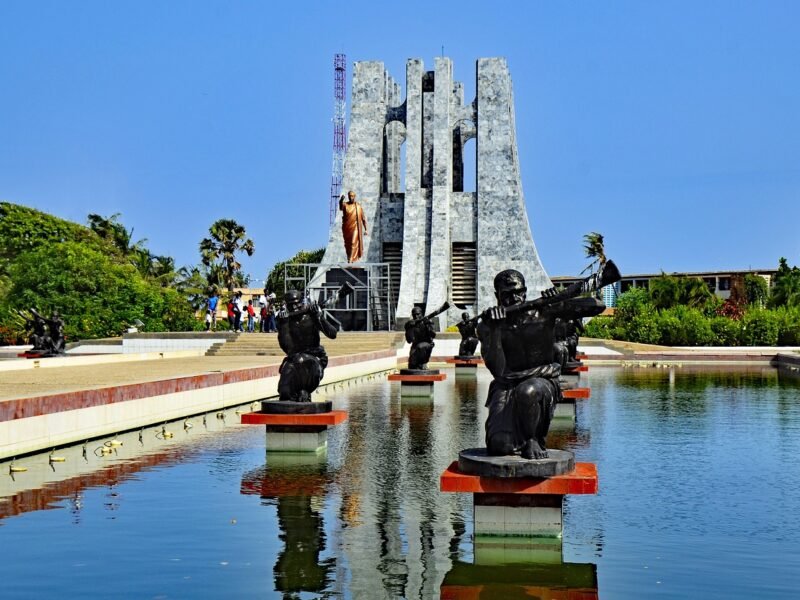Many dreams of exploring new places and starting a new life in a different country. But, if you’re considering moving to another country, you might feel excitement and apprehension. You might wonder, “How can I move to another country?” Moving to a new country can be exciting and challenging, whether looking for better job opportunities, a higher quality of life, or just a change of scenery. The aim is to provide insights and guidance on successfully moving to a new country. We cover topics such as choosing the right destination and navigating the legal aspects of immigration. So, keep reading if you’re ready to make your dream of living abroad a reality!
1. Research Your Ideal Country
If you’re planning to move to a new country, there are several crucial factors you need to consider. Proper research is vital, and one of the critical aspects to delve into is the immigration policies of your preferred destination. Every country has its unique rules and regulations regarding immigration, so it’s essential to understand these requirements. You should explore various visa options, such as work visas, student visas, or permanent residency, and determine which category aligns best with your goals. Additionally, you must delve into the application process, associated fees, and documentation prerequisites.
It’s also crucial to examine the job landscape in your chosen country. A nuanced understanding of the job market will help you assess your prospects and secure suitable employment upon arrival. You should research industries of interest, peruse job boards, and leverage networking platforms specific to your desired destination. This will provide insights into the demand for your skills and whether any certifications are needed before applying for positions.
Understanding the cost of living in your prospective country is paramount. This encompasses housing, transportation, food, utilities, and healthcare expenses. Grasping these financial aspects will enable you to budget effectively and determine if your ideal destination aligns with your financial circumstances. Websites and resources dedicated to cost-of-living comparisons offer valuable insights into the expected expenditures.
Assessing the healthcare system in your chosen country is crucial. You should research the quality of healthcare, accessibility, and requirements for immigrants. Determine if private health coverage is mandatory or if you can rely on the public healthcare system. Familiarizing yourself with available healthcare options ensures you receive necessary medical attention when needed.
Lastly, it would help if you acquainted yourself with the social nuances of your chosen country. Every nation has unique customs, language intricacies, cultural norms, religious practices, and regulations. Learning about these cultural subtleties will better prepare you for social integration and help avoid cultural misunderstandings. Consider reading books, joining online forums, or seeking advice from individuals with firsthand experience in your desired country.
2. Determine Your Eligibility
When you are planning to move to another country, it is crucial to understand the eligibility criteria first. There are several factors that you need to take into account to assess your eligibility. These factors include age criteria, educational requirements, language proficiency, work experience evaluation, financial stability, and identifying visa options.
Age criteria vary from country to country, and some may have specific age limits or standards for certain visas or programs. Therefore, it is essential to research and comprehend these age-related requirements to assess if you meet the eligibility criteria.
Education plays a significant role in eligibility for migration. Many countries have specific educational prerequisites, especially for skilled migration programs. Therefore, it is essential to evaluate your education level to ensure it aligns with the criteria set by the government of your desired destination.
Language proficiency is another critical factor in migration eligibility. Many countries require immigrants to meet a certain level of language proficiency to facilitate effective integration into society. Therefore, assessing your language skills and determining if you meet the level of proficiency needed is crucial.
Work experience is a significant consideration for eligibility. Many countries offer specific visa options, such as skilled or work visas, which require a minimum of work experience in particular industries. Therefore, evaluating your work experience and ensuring it aligns with the country’s requirements is crucial to gauging your eligibility.
Financial stability is often a component considered during eligibility assessments. Some countries require applicants to demonstrate their ability to support themselves and their families during their stay financially. Therefore, reviewing and ensuring that you meet the financial stability requirements set by the country you wish to migrate to is crucial.
Once you have assessed these factors, it is crucial to identify the viable visa options available to you. Research the various types of visas and immigration programs offered by your desired country. Each visa application category may have specific requirements and eligibility criteria. Take the time to understand these criteria and assess if you meet them thoroughly.
3. Plan Your Finances
Planning your finances is vital for a successful move to another country. There are several essential factors to consider, including visa application fees, transportation, housing, healthcare expenses, job prospects, budgeting for living costs, and emergency contingency.
Researching the specific requirements and costs of obtaining a visa in your desired destination is essential to incorporate these costs into your budget.
The logistics of relocating your belongings is also a crucial aspect to consider. You can explore various transportation options and obtain quotes to determine the most cost-effective method for your needs, considering any additional fees that may apply.
Finding affordable housing in your new country is a significant consideration. It is necessary to research average rental or property costs in your destination to anticipate what to expect. Deposits, realtor fees, and essential utilities should be considered to calculate the total cost of securing accommodation.
Healthcare is another essential aspect to consider when migrating to another country. Different countries have varying healthcare systems, so understanding your coverage options is critical. Research the cost of healthcare in your destination country and explore whether you need additional insurance to provide sufficient coverage during your transition period.
Exploring potential job opportunities in your new country is crucial for building a stable financial foundation. Research the job market, industry trends, and employment opportunities relevant to your skills and qualifications. Networking and reaching out to professionals in your field can be invaluable for understanding the job market and securing job offers in advance.
Creating an itemized budget is essential to help you save and manage your finances efficiently. The funding will allow you to plan for necessary expenses such as rent, utilities, food, and transportation. You can also understand how much you can allocate for savings or discretionary spending. Remember that living costs may vary depending on your home country, so adjusting your budget is crucial.
Setting aside contingency funds for unforeseen circumstances or emergencies is also wise. Unexpected costs may arise during relocation or while settling in a new country. Therefore, having a financial cushion will give you peace of mind and the necessary resources to handle unexpected situations.
By accounting for all the costs and expenses related to the move, researching potential job opportunities, and creating a comprehensive budget, you can ensure a smooth transition and provide a sense of security as you embark on your new journey.
Summary
The article guides how to move to a new country successfully. The first step is to research the ideal government, including its immigration policies, job landscape, cost of living, healthcare system, and social nuances. The second step is determining eligibility, including age criteria, educational requirements, language proficiency, work experience evaluation, and financial stability.






